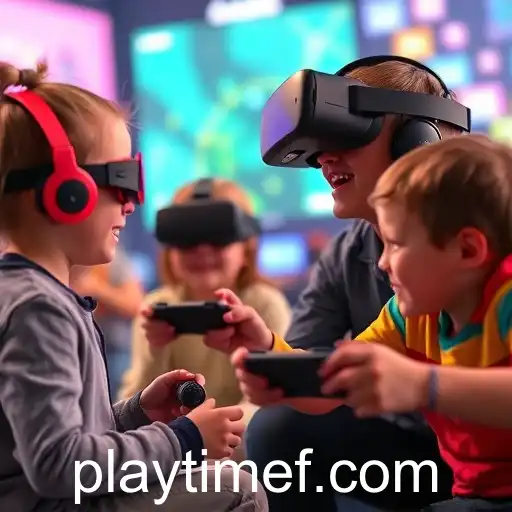playtime | The Digital Evolution of Playtime: Adapting to Changing Landscapes

In the ever-evolving landscape of digital interaction, the way children experience playtime has significantly transformed over recent years. As we navigate through 2025, technological advancements continue to reshape the contours of childhood entertainment, making it an exciting yet challenging environment.
One major development is the integration of augmented reality (AR) and virtual reality (VR) in children's play experiences. These technologies offer immersive environments that not only entertain but also educate. Interactive games that utilize AR and VR are now common, allowing kids to explore new worlds while learning essential skills. For instance, many educational platforms have adopted these tools to create engaging learning experiences that blend play and education seamlessly.
Moreover, the rise of online gaming communities has fostered social interaction in the digital realm. Unlike traditional playdates, children today often connect with friends in virtual spaces, competing or collaborating in online games. Platforms such as Roblox and Minecraft have been at the forefront, offering kids a sandbox to express their creativity while engaging in collaborative tasks. This shift towards digital interactions raises questions about the impact on social skills and development, creating a topic of discussion among educators and parents alike.
However, the increasing digitization of play comes with its set of challenges. Screen time has become a contentious issue, with experts emphasizing the need for balanced usage to avoid adverse effects on physical and mental health. Ensuring that playtime remains healthy necessitates a careful balance between digital and physical play activities.
As we look to the future, it's clear that digital play will continue to advance. The introduction of AI in gaming is set to further personalize play experiences, adapting to individual learning styles and preferences. While the possibilities are exciting, they also bring about the necessity for robust frameworks to ensure safety and promote healthy digital habits.
In conclusion, the digital evolution of playtime opens up a myriad of opportunities for children to learn and grow. However, it is crucial for caregivers and educators to navigate these changes thoughtfully, prioritizing a balanced approach that integrates the best of both digital innovation and traditional play.


The Evolution and Impact of Online Gaming in Modern Society
An exploration of the evolution of online gaming and its multifaceted impact on society in 2025.

The Evolution of Playtime in 2025
As gaming continues to evolve in 2025, new technologies are redefining how players experience playtime, from immersive VR environments to the rising social aspects of multiplayer platforms.

Revolutionizing Online Gaming: Playtime's Impact on the Industry
An exploration of how the online gaming platform Playtime is reshaping the gaming industry in 2025.

Digital Playtime Evolves in 2025
Exploring the latest advancements and trends in the digital gaming world of 2025.







